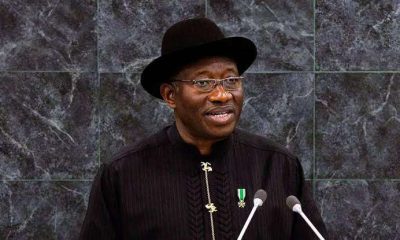Business
Nigerian travellers pay N274,500 different taxes on each international flight – Findings

Air passengers flying out of Nigeria are paying one of the highest amounts in taxes and charges across Africa, with an average cost of $180 (N275,500) per international departure, nearly three times the continental average of $68, according to a new report by the African Airlines Association (AAA).
The study, titled AFRAA Taxes and Charges Study Review 2024, highlights how excessive taxes, fees, and charges are hurting the growth of the aviation industry in Africa and putting an unfair burden on travellers.
Nigeria ranks as the third most expensive country in Africa in terms of air ticket taxes and charges, trailing only Gabon and Sierra Leone. Other West African countries like Niger, Benin, and Ghana also made the top 10 list of the continent’s costliest nations for air travel taxes.
On average, a passenger flying internationally from Africa pays $68 (N103,700) in taxes and charges, twice the global average and significantly higher than in Europe or the Middle East.
But in countries like Nigeria, passengers are paying more than double that figure due to a combination of government-imposed taxes, airport fees, and service charges.
“Gabon topped the list of Africa’s most expensive countries for international air departures, with passengers paying an average of $297.70 in taxes.
Sierra Leone followed closely at $294, while Nigeria ranked third with $180 in charges per international flight”, report stated.
Other countries listed among the ten most expensive included Djibouti ($168.70), Niger ($130.70), Benin ($123.40), Senegal ($122.60), Liberia ($115), Ghana ($111.50), the Democratic Republic of Congo ($109.90), and Chad ($105.70).
In contrast, the report named Libya as the least expensive country where air passengers pay just $1.30 in taxes.
Other countries with minimal departure charges included Malawi ($5.00), Lesotho ($5.70), Algeria ($9.80), Eswatini ($14.20), Tunisia ($15.40), Botswana ($18.90), Morocco ($25.10), Sao Tome ($26.00), Angola ($28.40), and South Africa ($28.50).
The association attributed the problem to non-adherence to International Civil Aviation Organisation (ICAO) policies, fragmented tax regimes, and overreliance on aviation as a source of government revenue.
“Air transport is perceived as a luxury service across the continent, leading governments, airports and service providers to overcharge airlines, even though many are struggling to survive”.
The group warned that the excessive charges are discouraging travel, stifling regional connectivity, and undermining the growth of the aviation sector across Africa.
It urged governments to harmonise tax policies, reduce passenger charges, and explore alternative funding mechanisms for aviation infrastructure.
Out of 54 African countries studied, 14 charge passengers over $100 in taxes and fees, up from 13 countries in 2022, a sign of worsening conditions for airlines and travellers.
The President of the Association of Foreign Airlines’ Representatives in Nigeria, Dr. Kingsley Nwokoma, said high operational costs continue to drive up airfares, making it more expensive to fly from Nigeria to other African countries than to some destinations in Europe.
“Data doesn’t lie. Nigeria is one of the most expensive countries in Africa to do aviation business.
It’s more expensive to fly from Nigeria to Togo or Yaoundé than it is to fly into Europe in some cases”, Nwokoma stated.
Beyond the high exchange rate and aviation fuel, airlines also struggle with limited access to affordable aircraft leasing and unfavourable terms from lessors.
The Federal Government has acknowledged some of the issues and continues to find a lasting solution.
Among these, it recently cleared a backlog of nearly $900m in foreign airline revenues that had been trapped due to a shortage of foreign exchange.
This issue had previously caused airlines to raise fares for Nigerian routes. Authorities have since urged airlines to adjust ticket prices in line with the improved situation.
The government has also signed the Cape Town Convention Practice Direction, intended to make aircraft leasing easier and more affordable for Nigerian carriers. Officials said this is expected to reduce operational costs in the long term.
The Ministry of Aviation led by Festus Keyamo has committed to supporting domestic airlines in acquiring aircraft at more favourable rates and accessing global markets for better leasing and financing terms. A review of airport-related charges is also underway, with the goal of easing the financial burden on both airlines and passengers.
According to Nwokoma, several foreign and local airlines have raised concerns about multiple charges levied by aviation authorities, including the Federal Airports Authority of Nigeria.
“We have spoken about this several times to FAAN. The system needs to be reviewed. If airlines pay more, those costs will ultimately be passed on to travellers”, he said.
He described the current charges in Nigeria as the highest on the continent and warned that unless regulatory authorities address these issues, the country risks losing competitiveness in regional air travel.
“The statistics are clear and factual. The only way out is to review and reduce the multiple charges placed on airlines,” he added.










